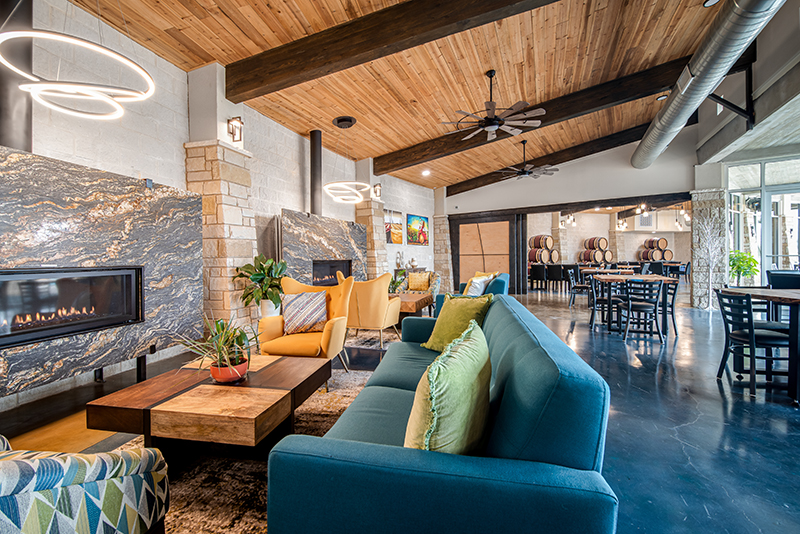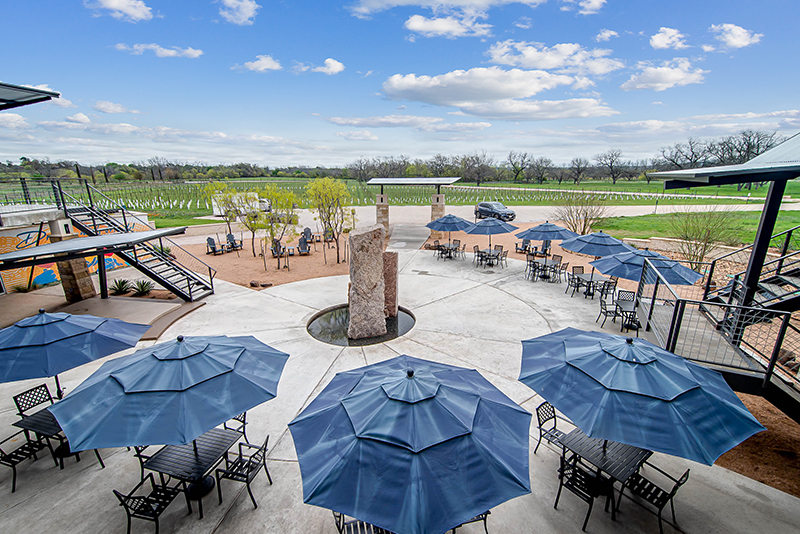Winemaking is a dirty business. Even the popular Discover Channel TV show, “Dirty Jobs,” hosted by Mike Rowe, did an episode at a winery. It takes about 120 gallons of water to produce one gallon of wine. The main uses are irrigating the grape vines and cleaning the winery and winemaking equipment. You may be surprised to learn that the solution could rest on a bed of earthworms.
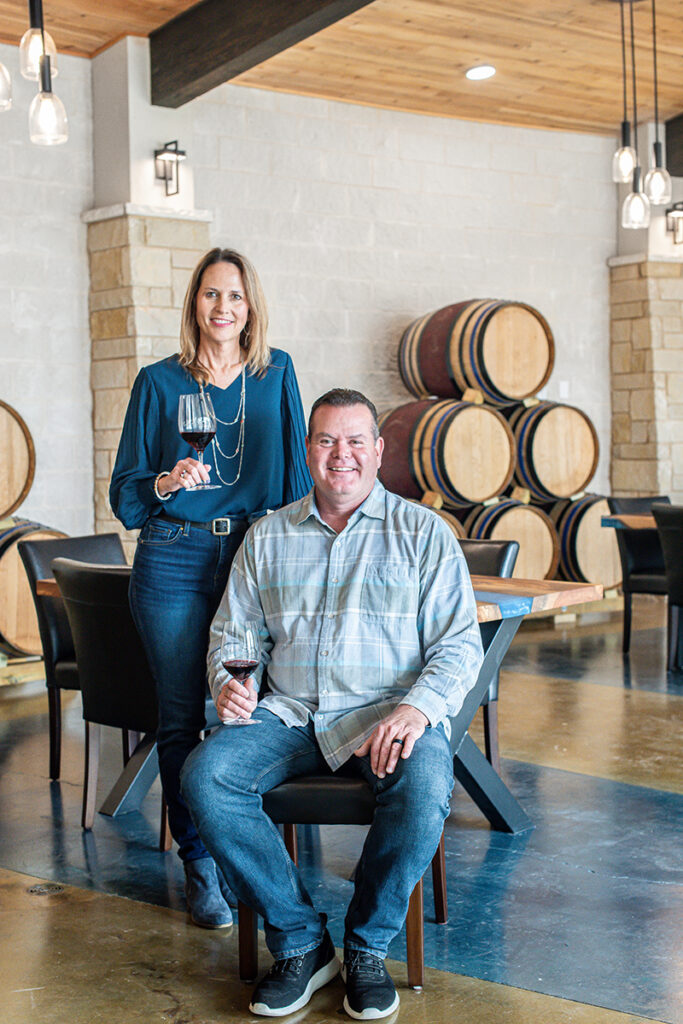
It’s no secret that Texas frequently suffers from drought conditions. Sustainable water management practices can help with the impact of drought on our vineyards, and Michael Ros Winery is setting a good example.
Rosann and Mike Mitrione had successful careers in the corporate world for thirty years when they felt the undeniable pull of wine. They planted their first grapes in the Texas High Plains in 2018. Three years later, they relocated from North Texas to the Hill Country, and the following year, they planted vines on the estate while planning the winery and tasting room construction. Michael Ros Winery opened the tasting room doors in the fall of 2023 with a commitment to being good stewards of the land and making top-quality Texas-grown wines.
The couple hired winemaker Tim Drake, not only for his well-respected winemaking skills but also because of their shared beliefs. The team shares a passion for protecting the environment, making their partnership an easy fit. Tim crafted wines for the new label while also helping to design the winery space. He had previously researched a filtration system that would clean winery wastewater for irrigating the vineyard. When Tim shared his findings with the Mitriones, they were intrigued. This water management strategy could help their grapes and their land overall. And it all works using earthworms!
The Mitriones installed a BioFiltro system to regenerate useful water from the wastewater coming from the winery. Here’s where things get interesting because, according to BioFiltro.com, it uses the “digestive power of worms and microbes to remove up to 99% of wastewater contaminants within four hours.” Water flows from the winery drains through underground pipes to a shipping container outfitted with a filter to remove solids, such as grapes. The water flows into a tank where the BioFiltro analysis system monitors characteristics, including pH. The system pushes the water into another shipping container outfitted with the earthworm setup.
Water is dispersed through a sprinkler system into a layer of wood shavings with earthworms and natural microbes. The worms feed on the grape skins, seeds, sugars, and other organic compounds flushed through the winery drainage system. Below the worm habitat is a layer of crushed rock, and the final layer is the drainage basin where the water collects. The system removes biochemicals, suspended solids, ammonia, nitrogen, phosphorus, and volatile solids, which are the most commonly regulated components of wastewater. Very little energy is expended to recycle the water, making a further environmental impact by using less electrical power.
BioFiltro creates custom systems ranging from a small winery, such as Michael Ros, which is outfitted to produce 5,000 cases of wine annually, and moving up to huge production facilities, such as California’s organic Bonterra Winery, which produces half a million cases each year. In addition to the drinks industry, their systems are used by dairy farms, feedlots, fish hatcheries, and food processors, to name a few.
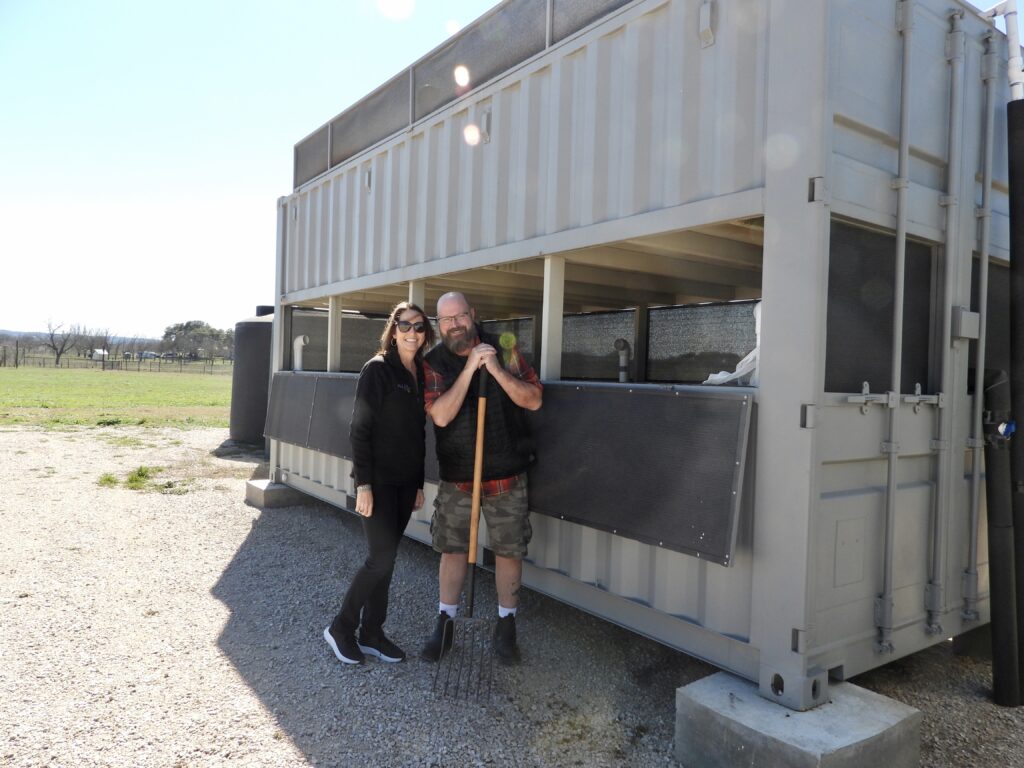
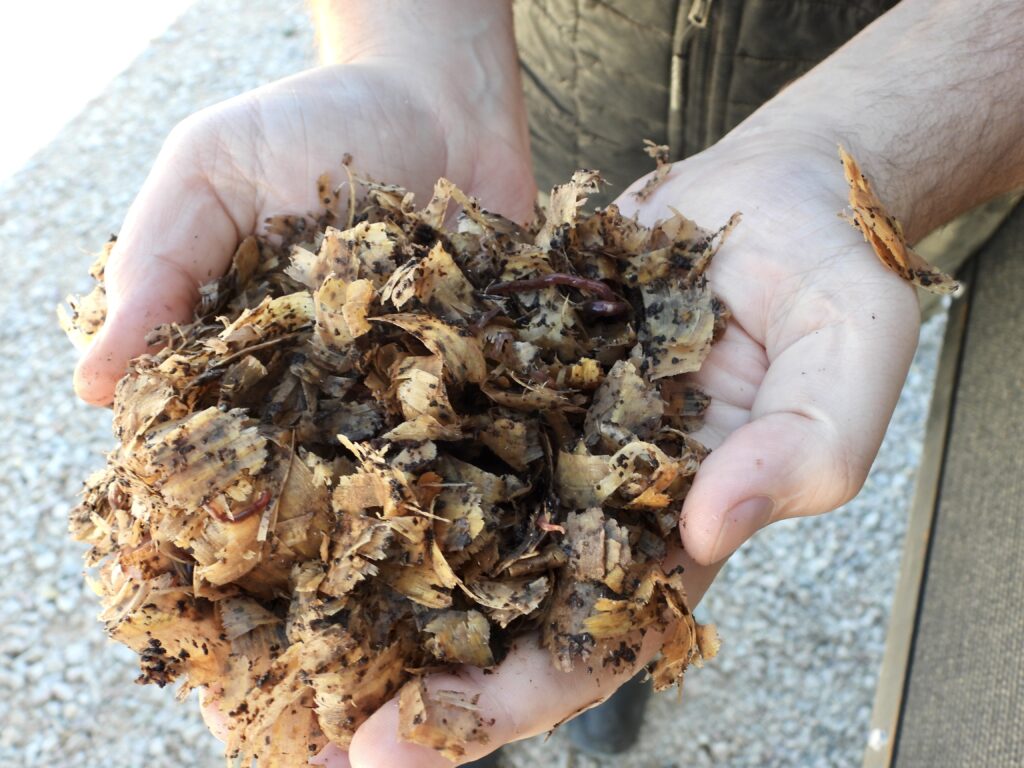
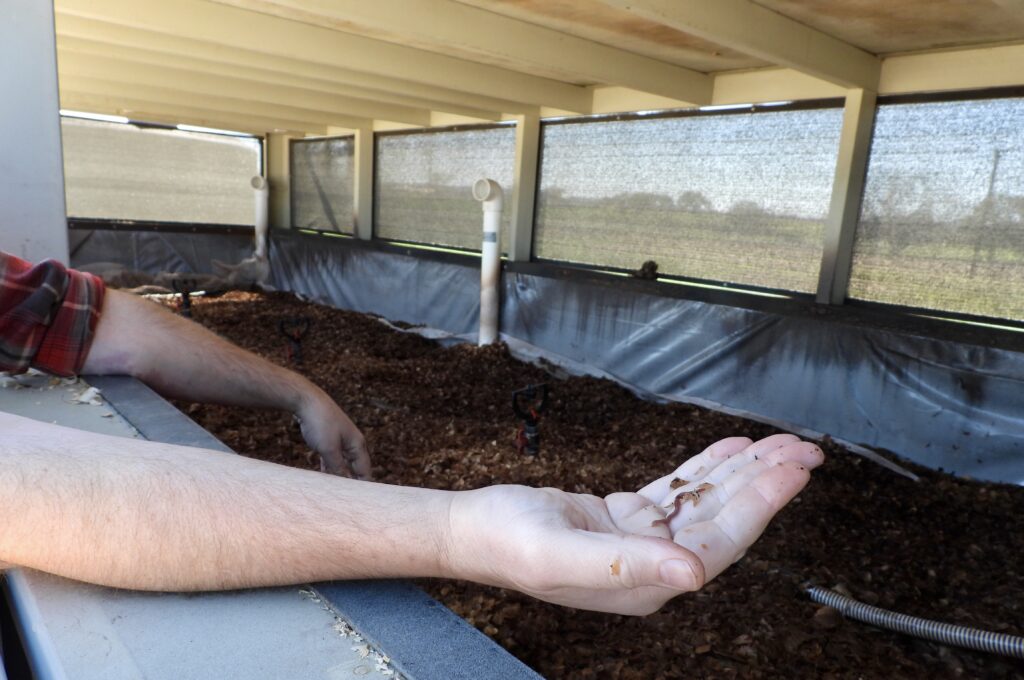
“Being good stewards of the land and our resources is important to Mike and me,” Rosann said. “Given the drought conditions in the Hill Country, conserving water was our number one priority, so we invested heavily in the BioFiltro system as part of our initial build. We have also installed Purple Martin houses and Barn Owl boxes to help manage pest control naturally. Our future plans include adding solar panels, electric car stations, and baby doll sheep once the vines are mature enough.”
In addition to providing safe water recycling, the worm castings are a nutritious soil fertilizer that improves soil health and crop yield. Michael Ros is the first winery in Texas to utilize this natural water filtration system, and they hope to impress other wineries with the importance of water management.
As with many things that are worthwhile, the system is costly, but it is not as much as you may think. As part of Michael Ros’s Earth Day celebrations, they are giving our community an opportunity to see the BioFiltro system in person on April 18. Winery owners and industry leaders are welcome to reach out to Rosann@MichaelRosWinery.com for details.
The Mitriones would love to see this system broadly adopted in Texas. And we all benefit from each small step taken toward sustainability.
